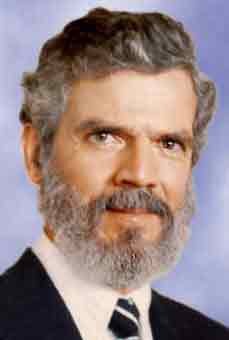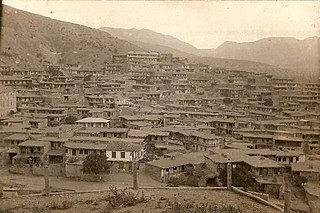Related Research Articles

Democide refers to "the intentional killing of an unarmed or disarmed person by government agents acting in their authoritative capacity and pursuant to government policy or high command." The term was first coined by Holocaust historian and statistics expert, R.J. Rummel in his book Death by Government, but has also been described as a better term than genocide to refer to certain types of mass killings, by renowned Holocaust historian Yehuda Bauer. According to Rummel, this definition covers a wide range of deaths, including forced labor and concentration camp victims, extrajudicial summary killings, and mass deaths due to governmental acts of criminal omission and neglect, such as in deliberate famines like the Holodomor, as well as killings by de facto governments, for example, killings during a civil war. This definition covers any murder of any number of persons by any government.

Genocide is the intentional destruction of a people in whole or in part.

Ethnic cleansing is the systematic forced removal of ethnic, racial, or religious groups from a given area, with the intent of making a region ethnically homogeneous. Along with direct removal such as deportation or population transfer, it also includes indirect methods aimed at forced migration by coercing the victim group to flee and preventing its return, such as murder, rape, and property destruction. The definition of ethnic cleansing is disputed, with some researchers including and others excluding coercive assimilation or mass killings as a means of depopulating an area of a particular group.
Mass killing is a concept which has been proposed by genocide scholars who wish to define incidents of non-combat killing which are perpetrated by a government or a state. A mass killing is commonly defined as the killing of group members without the intention to eliminate the whole group, or otherwise the killing of large numbers of people without a clear group membership.

Rudolph Joseph Rummel was an American political scientist and professor at the Indiana University, Yale University, and University of Hawaiʻi at Mānoa. He spent his career studying data on collective violence and war with a view toward helping their resolution or elimination. Contrasting genocide, Rummel coined the term democide for murder by government, such as the genocide of indigenous peoples and colonialism, Nazi Germany, the Stalinist purges, Mao Zedong's Cultural Revolution, and other authoritarian, totalitarian, or undemocratic regimes, coming to the conclusion that democratic regimes result in the least democides.

From 1930 to 1952, the government of the Soviet Union, on the orders of Soviet leader Joseph Stalin under the direction of the NKVD official Lavrentiy Beria, forcibly transferred populations of various groups. These actions may be classified into the following broad categories: deportations of "anti-Soviet" categories of population, deportations of entire nationalities, labor force transfer, and organized migrations in opposite directions to fill ethnically cleansed territories. Dekulakization marked the first time that an entire class was deported, whereas the deportation of Soviet Koreans in 1937 marked the precedent of a specific ethnic deportation of an entire nationality.
The Polish Operation of the NKVD in 1937–1938 was an anti-Polish mass-ethnic cleansing operation of the NKVD carried out in the Soviet Union against Poles during the period of the Great Purge. It was ordered by the Politburo of the Communist Party against so-called "Polish spies" and customarily interpreted by NKVD officials as relating to 'absolutely all Poles'. It resulted in the sentencing of 139,835 people, and summary executions of 111,091 Poles living in or near the Soviet Union. The operation was implemented according to NKVD Order No. 00485 signed by Nikolai Yezhov.

Norman M. Naimark is an American historian. He is the Robert and Florence McDonnell Professor of Eastern European Studies at Stanford University, and a senior fellow at the Hoover Institution. He writes on modern Eastern European history, genocide, and ethnic cleansing in the region.
The actions by governments of communist states have been subject to criticism across the political spectrum. Communist party rule has been especially criticized by anti-communists and right-wing critics, but also by other socialists such as anarchists, trotskyists, democratic socialists, libertarian socialists and orthodox Marxists. Ruling communist parties have also been challenged by domestic dissent. According to the critics, rule by communist parties has often led to totalitarianism, political repression, restrictions of human rights, poor economic performance, and cultural and artistic censorship.
The Political Instability Task Force (PITF), formerly known as State Failure Task Force, is a U.S. government-sponsored research project to build a database on major domestic political conflicts leading to state failures. The study analyzed factors to denote the effectiveness of state institutions, population well-being, and found that partial democracies with low involvement in international trade and with high infant mortality are most prone to revolutions. One of the members of the task force resigned on January 20, 2017, in protest of the Trump administration, before Donald Trump was sworn in as U.S. president.

Mass killings under communist regimes occurred through a variety of means during the 20th century, including executions, famine, deaths through forced labour, deportation, starvation, and imprisonment. Some of these events have been classified as genocides or crimes against humanity. Other terms have been used to describe these events, including classicide, democide, red holocaust, and politicide. The mass killings have been studied by authors and academics and several of them have postulated the potential causes of these killings along with the factors which were associated with them. Some authors have tabulated a total death toll, consisting of all of the excess deaths which cumulatively occurred under the rule of communist states, but these death toll estimates have been criticized. Most frequently, the states and events which are studied and included in death toll estimates are the Holodomor and the Great Purge in the Soviet Union, the Great Chinese Famine and the Cultural Revolution in the People's Republic of China, and the Cambodian genocide in Democratic Kampuchea.
Barbara Harff is professor of political science emerita at the U.S. Naval Academy in Annapolis, Maryland. In 2003 and again in 2005 she was a distinguished visiting professor at the Strassler Center for Holocaust and Genocide Studies at Clark University. Her research focuses on the causes, risks, and prevention of genocidal violence.

Crimes against humanity under communist regimes occurred during the 20th century, including forced deportations, massacres, torture, forced disappearances, extrajudicial killings, terror, ethnic cleansing, and enslavement, as well as deliberate starvation of people. Additional events included the use of genocide, conspiracy to commit genocide, and complicity in genocide. Such events have been described as crimes against humanity.
Classicide is a concept proposed by sociologist Michael Mann to describe the deliberate and systematic destruction, in whole or in part, of a social class through persecution and violence. Although it was first used by physician and anti-communist activist Fred Schwarz in 1972, classicide was popularized by Mann as a term that is similar to but distinct from genocide because it means the "intended mass killing of entire social classes." Classicide is considered a form of "premeditated mass killing", which is narrower than genocide, because the target of a classicide is a part of a population which is defined by its social status, and classicide is also considered broader than politicide because the group which is targeted for classicide is killed without any concern for its political activities.

Estimates of the number of deaths attributable to the Soviet revolutionary and dictator Joseph Stalin vary widely. The scholarly consensus affirms that archival materials declassified in 1991 contain irrefutable data far superior to sources used prior to 1991 such as statements from emigres and other informants.
Benjamin Andrew Valentino is a political scientist and professor at Dartmouth College. His 2004 book Final Solutions: Mass Killing and Genocide in the 20th Century, adapted from his PhD thesis and published by Cornell University Press, has been reviewed in several academic journals.

War and genocide studies is an interdisciplinary subject that identifies and analyzes the relationship between war and genocide, as well as the structural foundations of associated conflicts. Disciplines involved may include political science, geography, economics, sociology, international relations, and history.
Below is an outline of articles on the academic field of genocide studies and subjects closely and directly related to the field of genocide studies; this is not an outline of acts or events related to genocide or topics loosely or sometimes related to the field of genocide studies. The Event outlines section contains links to outlines of acts of genocide.
References
- ↑ Harff, Barbara; Gurr, Ted Robert (September 1988). "Toward Empirical Theory of Genocides and Politicides: Identification and Measurement of Cases since 1945". International Studies Quarterly. Wiley on behalf of The International Studies Association. 32 (3): 359–371. doi : 10.2307/2600447. JSTOR 2600447. ISSN 0020-8833.
- ↑ Wayman, Frank W.; Tago, Atsushi (January 2010). "Explaining the Onset of Mass killing, 1949–87". Journal of Peace Research Online. Thousand Oaks: SAGE Publications. 47 (1): 3–13. doi : 10.1177/0022343309342944. JSTOR 25654524. S2CID 145155872. ISSN 0022-3433. "The two important scholars who have created datasets related to this are Rummel (1995) and Harff (2003). Harff (sometimes with Gurr) has studied what she terms 'genocide and politicide', defined to be genocide by killing as understood by the Genocide Convention plus the killing of a political or economic group (Harff & Gurr, 1988); the combined list of genocides is sometimes labeled 'geno-politicide' for short. Rummel (1994, 1995) has a very similar concept, 'democide', which includes such genocide and geno-politicide done by the government forces, plus other killing by government forces, such as random killing not targeted at a particular group. As Rummel (1995: 3-4) says, 'Cold-blooded government killing ... extends beyond genocide'; For example, 'shooting political opponents; or murdering by quota'. Hence, 'to cover all such murder as well as genocide and politicide, I use the concept democide. This is the intentional killing of people by government' (Rummel, 1995: 4). So Rummel has a broader concept than geno-politicide, but one that seems to include geno-politicide as a proper subset." Quote at p. 4.
- ↑ Midlarsky, Manus (2005). The Killing Trap: Genocide in the Twentieth Century Archived 30 July 2023 at the Wayback Machine . New York: Cambridge University Press. pp. 22, 309–310. ISBN 978-0-521-81545-1.
- ↑ Midlarsky, Manus (2005). The Killing Trap: Genocide in the Twentieth Century Archived 30 July 2023 at the Wayback Machine . New York: Cambridge University Press. p. 321. ISBN 978-0-521-81545-1.
- ↑ Jones, Adam (2010). Genocide: A Comprehensive Introduction (2nd ed.). New York: Routledge. p. 137. ISBN 978-0-415-48619-4. According to Jones: "Also unsurprisingly, it was the settler-colonial regimes who were most anxious to exclude cultural genocide from the Genocide Convention, as Raphael Lemkin’s biographer John Cooper points out." pp. 102.
- ↑ Schaack, Beth (1997). "The Crime of Political Genocide: Repairing the Genocide Convention's Blind Spot". The Yale Law Journal. 106 (7): 2259–2291. doi : 10.2307/797169. JSTOR 797169. ISSN 0044-0094
- ↑ Staub, Ervin (June 2000). "Genocide and Mass Killing: Origins, Prevention, Healing and Reconciliation". Political Psychology. 21 (2): 367–382. doi : 10.1111/0162-895X.00193. JSTOR 3791796. ISSN 1467-9221
- ↑ Atsushi, Tago; Wayman, Frank W. (January 2010). "Explaining the Onset of Mass Killing, 1949–87". Journal of Peace Research Online. Thousand Oaks: SAGE Publications. 47 (1): 3–13. doi : 10.1177/0022343309342944. JSTOR 25654524. S2CID 145155872.
- ↑ Williams, Paul (2008). Security Studies: An Introduction Archived 20 November 2020 at the Wayback Machine . London: Taylor & Francis. p. 321. ISBN 978-0-415-42561-2.
- ↑ Otis, John (17 October 1999). "'Political cleansing' in Colombia rising". colombiasupport.net. Houston Chronicle. Archived from the original on 15 May 2001.
- ↑ Davis, Diane E.; Anthony W. Pereira, eds. (2003). Irregular Armed Forces and their Role in Politics and State Formation. Cambridge University Press. ISBN 978-1-139-43998-5 . Retrieved 30 November 2016.